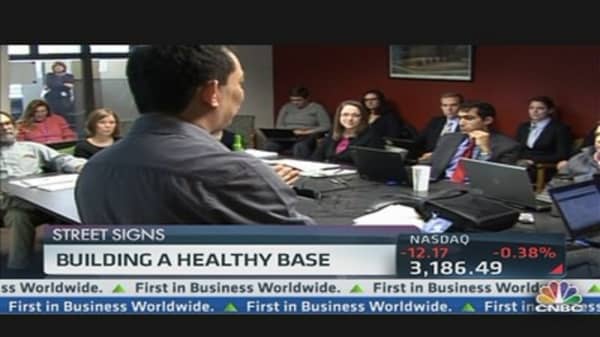States that defaulted to the federally-built health exchange late last year have until the end of the day Friday to declare whether they will opt to run part of the online marketplaces that will serve to enroll people under the Affordable Care Act, also known as Obamacare.
Earlier this week, Illinois and New Hampshire declared they would partner with the Obama administration, bringing the total to seven states opting in. North Carolina's Republican Governor, Pat McCrory, said his state would opt out, reversing a decision by his predecessor to take part in a partnership.
"It would surprise me if a couple more states don't come out and say they're going to do some portion of a partnership," said Patrick Howard, state health care leader at Deloitte. "It seems a lot of states would want to have a little bit more control into how plans get authorized."
(Read More: State Obamacare Exchange Buildout Shifts Into High Gear.)
New Jersey, Ohio, Tennessee, Virginia and West Virginia are among the states that had not declared definitively whether they'd opt for a partnership. Partnering on running the exchange does not obligate states to take part in the Medicare expansion, which remains controversial with many Republican governors.
Vermont's Commissioner of Health Access, who spent the last 18 months laying the groundwork for his state's exchange, thinks it will be a challenge for states just jumping into the race now. Some of the insurance plan selection procedures need to get going by early spring. Outreach and education programs need to be ready to go this summer, ahead of the October enrollment season.
"It's obviously a very short time frame to get a lot done," said Vermont Commissioner Mark Larson.
(Read More: Tight Deadlines, Big Challenges for Health Exchanges.)
But the woman who is helping to lead the build out of the federal exchange said most users won't notice much difference from the state-built exchanges except for the branding of the online marketplaces.
"Whether you go in through the federal experience, to your state exchange," said Melissa Boudreault, CGI vice president of state health solutions, "the experience will be very, very similar."
(Read More: Drop Coverage or Cut Hours? Big Companies Grapple With Obamacare.)
Boudrealt expects the outreach effort in states that are running their own exchanges or partnering with the Obama administration will likely be more extensive, and that could ultimately affect enrollment. It's a key issue when it comes to so-called "young invincibles" who may opt to pay the $95 penalty for not carrying insurance, rather than buy a plan they deem too expensive.
"It becomes a big question of you recruit the young," said Deloitte's Patrick Howard. "The individual mandate, in and of itself, is not sufficient."
—By Bertha Coombs; Follow her on Twitter: @coombscnbc
CORRECTION: An earlier version of this story identified Vermont Commissioner of Health Access Mark Larson as Howard Larson.






